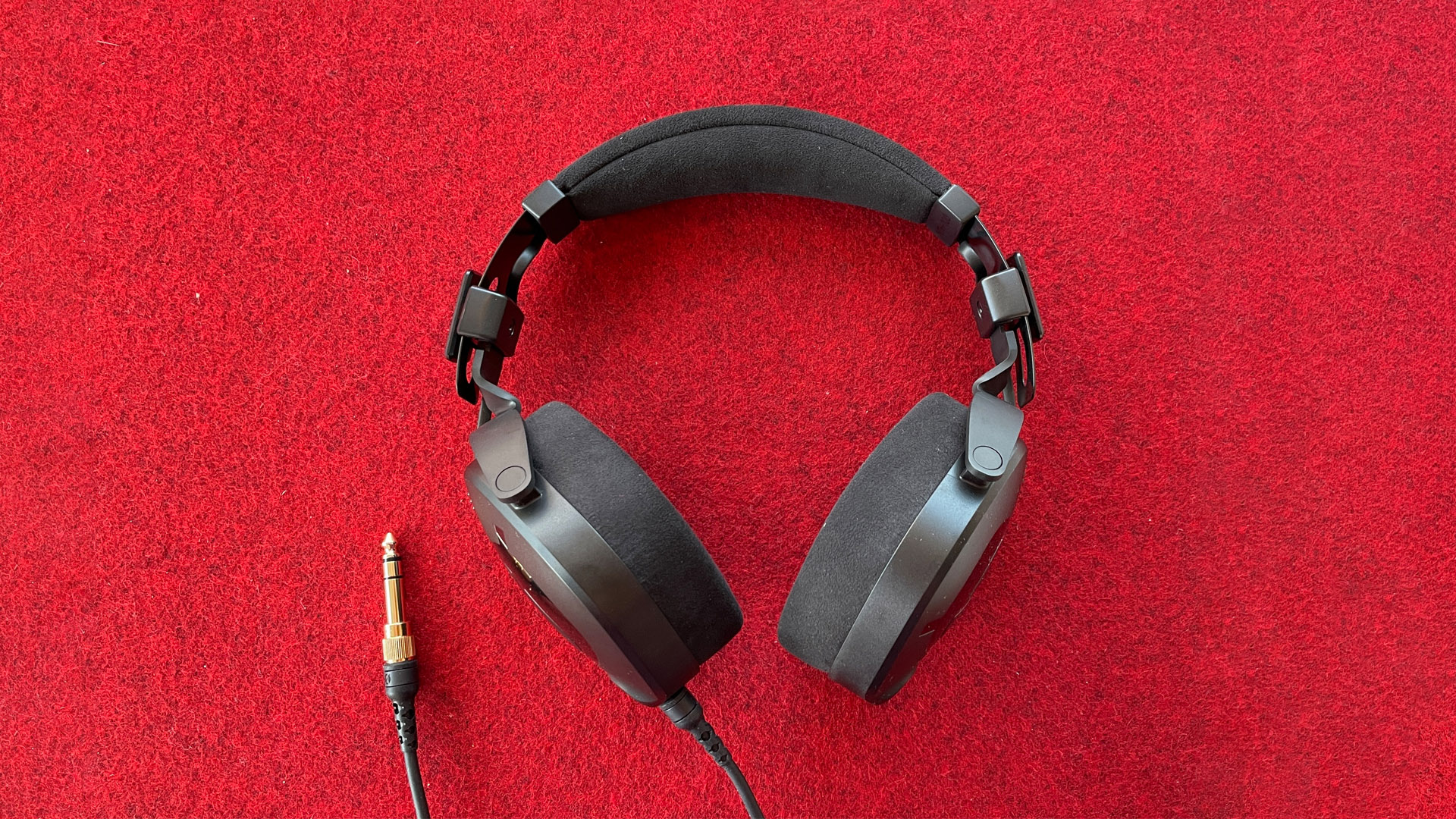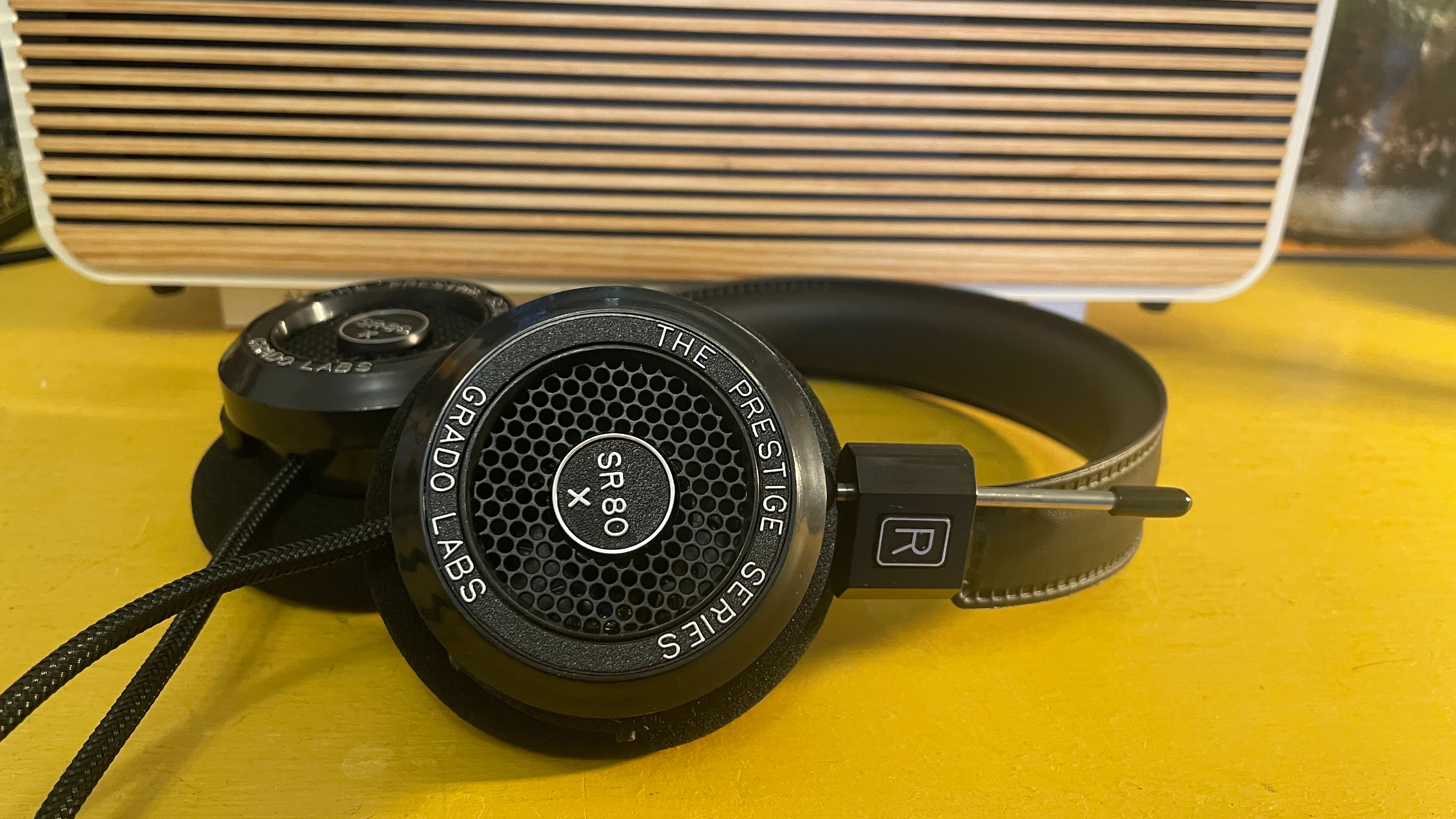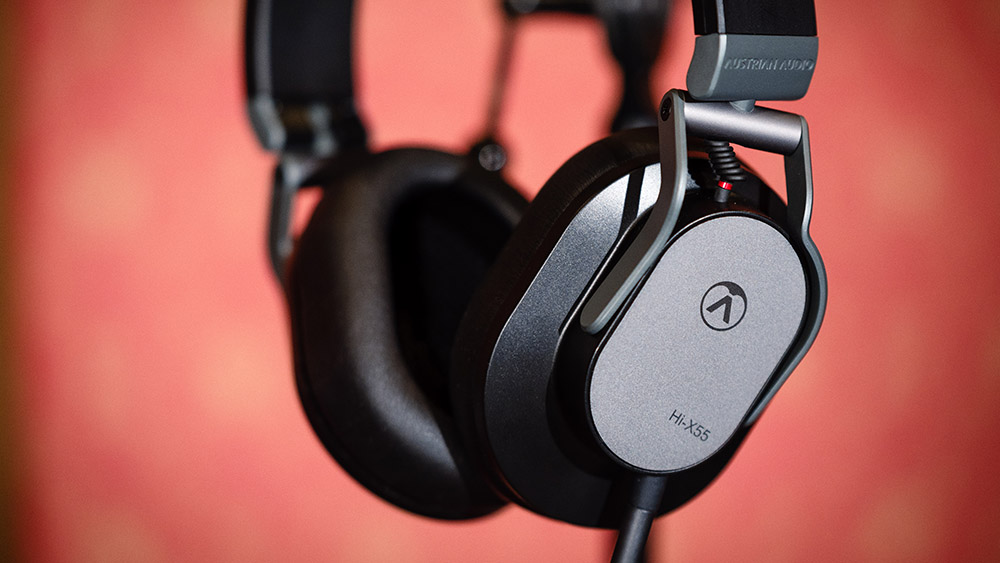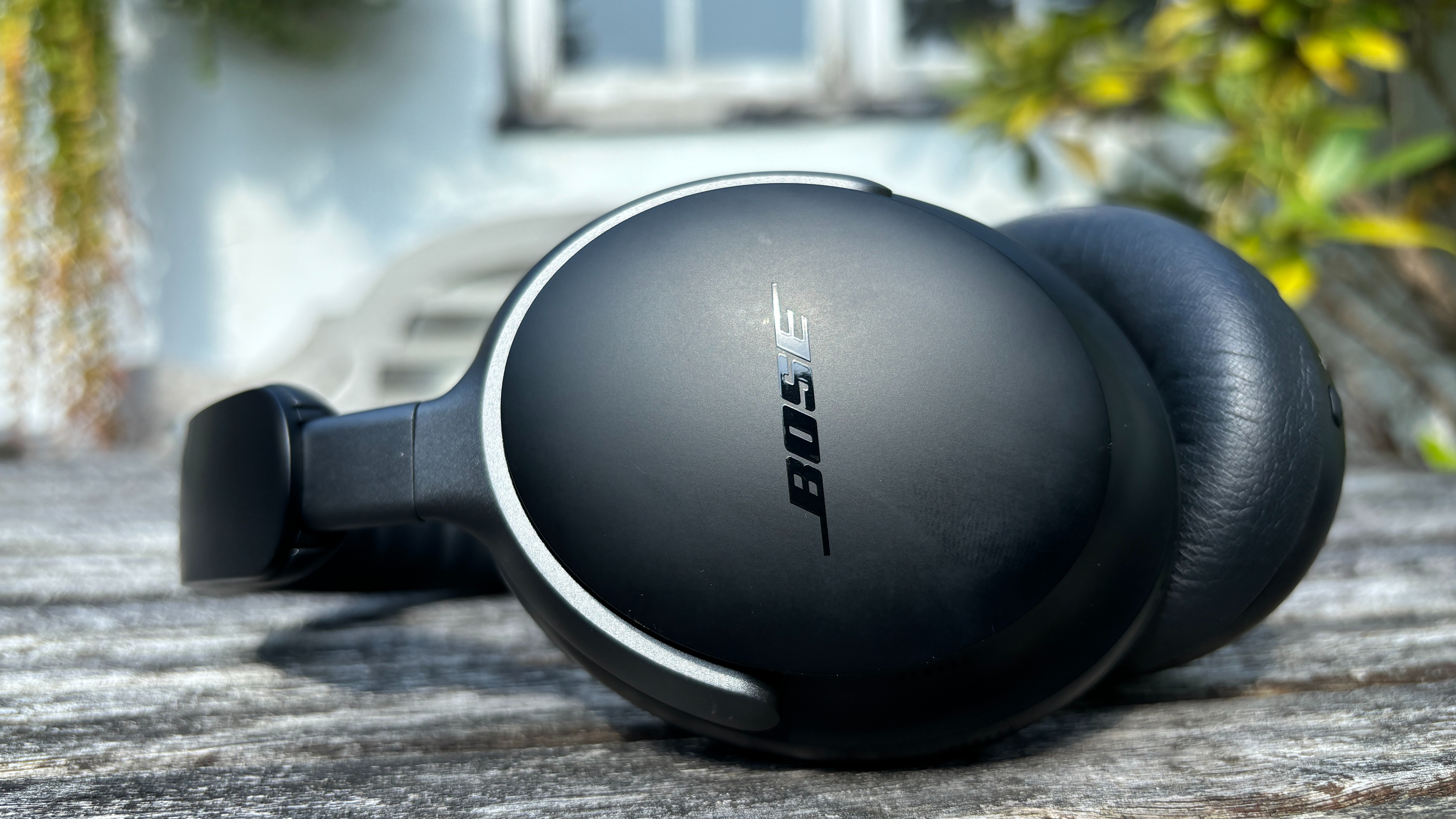
The wired vs wireless headphones battle has raged for years, splitting users into two main camps. In one are those who crave the convenience of wire-free living and the benefit of ultra-modern features such as active noise cancellation, and in the other are those who prioritise the utmost sound quality and fidelity that wires deliver as well as the sustainability
Neither is the 'right' camp, and which you want to belong to depends on your priorities, preferences and budget. Below we have outlined what defines 'wired' and 'wireless' headphones, the pros and cons of both types and the criteria you should consider when deciding between the two and shopping for a pair.
We have been testing wired and wireless headphones for decades – our in-house team of reviewers share over 150 years of collective experience and expertise – and with our extensive first-hand experience in reviewing headphones, be they cheap and cheerful or high-end and handsome, we are perfectly placed to explain which type – wired or wireless – is right for you.
What are wired headphones?

A diaphragm cone, coil of wire, magnet, structural housing, earpads and a jack-ended cable – that is what makes up your classic pair of wired headphones.
Unless they offer active noise cancellation (more on that later), wired headphones are strictly analogue designs that require no power or digital processing. The electrical current the connected device sends them through their cable is all they need to work. Essentially, they are passive loudspeakers for your head.
Wired models physically tether to a source device using the headphones-attached cable, which is typically terminated with a 3.5mm TRS plug connection, though alternative adapters are available if you're connecting to a source that doesn't take 3.5mm.
Audiophiles will insist that wired headphones deliver the best sound quality, and in both absolute and performance-per-pound (or dollar) terms, they are right. As we'll see below, cables act as a more efficient and effective means of transmitting audio data, and while Bluetooth technology is improving and other means of wireless transmission (look out for wi-fi headphones) are emerging, wired remains the way to go for audiophiles everywhere.
Wired headphones: pros
Better sound quality
When it comes to sound performance, the quality tends to be better on wired headphones. You can get a great pair of wireless headphones that sound better than a poor pair of wired headphones, but generally in head-to-heads between decent, price-comparable wired and wireless models, the former comes out on top.
While wireless performance is better than ever due to increasingly efficient Bluetooth codecs, DACs and amplifiers, it's still unable to offer the purity of wired performance. Primarily, analogue transmission through a cable can carry a song's full audio data, whereas audio transmitted wirelessly is compressed and crucial information is lost.
More sustainable
Wired headphones are also more sustainable. Yes, despite having an extra cable in there, they don't require batteries to work. Lithium mining is a strong environmental concern right now, so if you want to avoid contributing to that, wired headphones are the way to go. There's also no worry that a battery will die and void the headphones prematurely, and as there are fewer mechanical elements, wired headphones tend to be easier to repair, meaning they often last longer.
Don't require power
In addition to a theoretically limitless lifetime, an advantage of avoiding batteries is that you never need to worry about wired headphones running out of charge; they will simply work with whatever device you are playing from. You can get wired headphones that require a battery to power a digital active noise cancellation feature, but such models are increasingly rare.
Latency-free
There's pretty much zero latency with wired headphones, so you don't get any detectable delay between the audio source and what you're hearing. That makes them ideal for watching movies or gaming with. Bluetooth transmission, however, does introduce some latency, though admittedly these are nowadays mostly negligible to the ears and eyes as the technology improves.
Upgradeable
As none of the conversion or amplification is the responsibility of wired headphones, a wired setup can be upgraded with a standalone DAC. Got Bluetooth headphones? The only real significant upgrade you can make is with the headphones themselves.

Wired headphones: cons
Limited portability
One major downside to wired headphones is, of course, those wires. They look messy, can restrict movement when you're out and about, often break and can even add weight to your headphones. Plus, with fewer headphone 3.5mm ports on modern-day audio devices, you're limited as to which portable devices you can use without an adapter...
Need an adapter
As most smartphone brands have omitted the headphone jack, you'll likely need an adapter, such as a 3.5mm-to-USB-C one – to ensure compatibility. This means another thing to carry around and another expense to consider.
Noise cancelling is rare
As we've touched on above, it's rare to find wired headphones with active noise cancelling these days. ANC technology has almost exclusively become a feature of wireless headphones, so unless you find one of the remaining models your sound-blocking is down to how well the earpads – and chosen volume levels – can physically do it.
Limited waterproofing
Another feature more or less limited to wireless headphones is water resistance. Not many pairs of wired headphones are designed to be, or certified as, waterproof, though at least they don't have digital internals that could render them unusable if exposed to moisture.
What are wireless headphones?

Wireless headphones are quite literally that – headphones that don't need to connect to a source device via a wire or cable. Instead, they receive audio signals through radio or – very uncommon nowadays – infrared frequencies. Most wireless headphones and audio devices exchange music signals over Bluetooth technology, which operates over a short-wave radio band (typically 2.4GHz).
Essentially, the source device sends digital audio using its Bluetooth transmitter, the wireless headphones accept it through their Bluetooth receiver, and then a digital-to-analogue (DAC) chip converts the digital audio into an analogue waveform that the drivers can understand. Wireless headphones use an amplifier to move the drivers and power themselves via a rechargeable built-in battery.
This wireless transmission and DAC conversion have detrimental effects on sound performance, with the quality (and implementation) of the DAC chip and the type of Bluetooth codec/compression used determining how much.
You should note that while all wireless headphones and 'true wireless' earbuds are totally cable-free, some wireless 'neckband' earbuds have a wire connecting each earpiece together, as seen on the Beats Flex, say.
It's also worth knowing that most wireless over-ear headphones have an audio port and come with a cable so that can be used passively as wired headphones if their battery dies at an unfortunate time. Some, however, cannot even be used wired when they're out of battery as their headphones’ drivers require power to work.
Wireless headphones: pros
Maximum portability
Having no wires makes for the ultimate freedom of movement. That makes wireless headphones ideal when exercising, as well as if simply used for music playback and/or voice calls when you're on the move. You have a better look, no cable swinging from your headphones, and you can store them away more efficiently.
Improving sound quality
Mostly thanks to more efficient Bluetooth transmission via ever-improving codecs, wireless headphone performance is better than ever. Wired performance still trumps them, but realistically you can get a level of sound quality most people would be more than happy with in a premium pair of wireless cans.
Increasingly present noise-cancelling
Active noise cancellation is increasingly present in wireless headphones and earbuds across pretty much all budgets, now no longer a feature exclusive to premium-priced pairs. Considering the technology's disappearance from wired models, this puts a feather in the cap of wireless headphones, completing their CVs as the better travel companion.
Universal compatibility
Most modern audio and video devices now have Bluetooth (whereas very few pack in 3.5mm ports). As such, wireless headphones are natively compatible with a greater range of audio devices, from smartphones and speakers to TVs and laptops.

Wireless headphones: cons
Comparatively worse sound quality
Again, since all forms of Bluetooth require the audio signal to be compressed, it inherently means losses in audio information and therefore quality. The battery, amplifier, DAC and noise-cancelling processing – basically, everything inside that is digital – can also harm sound quality by interfering with the signal. As there is literally more to wireless headphones, the increased cost element is fed down to the consumer, which is another reason for the discrepancy between price-comparable wired and wireless headphones performance.
Latency
Since wireless technology requires the packaging up, transmission and unpacking of data, it can introduce lag in the process. This latency can mean the time between seeing someone talking on your device's screen and hearing them in your headphones is out slightly. That said, Bluetooth technology is closing the gap on this, making it increasingly less of a problem.
Wireless transmission can also mean cutouts, especially in denser environments where lots of radio signals are flying about.
Battery-dependent
As wireless headphones power their digital internals using built-in rechargeable batteries, it does mean you have the inconvenience of keeping them charged, and the greater inconvenience if you forget to and run out of juice mid-commute. That said, many have excellent battery life performance, even with ANC in use, and most can still be used wired (via an often-supplied cable) when they run out of power.
Wired vs wireless: which should you choose?
So there you have it. Wired headphones are ahead of their wireless rivals in terms of durability, sustainability and sound quality, though they are often behind the times when it comes to offering cutting-edge features, convenience and usability. Wireless earbuds and headphones are getting far more impressive sonically, yet they still can't reach the levels of their price-matched rivals on the audio front.
If you value both and are looking for a more comprehensive, do-it-all set of headphones, premium wireless headphones are generally the way to go.
It also doesn't have to be a case of either/or. Many users have a dedicated pair of wired headphones for serious listening sessions at home, and another set of wireless buds or over-ears for commuting, running and generally getting out and about with a head full of wire-free tunes. Having a dedicated pair of robust, portable wireless companions also serves to protect your precious wired pair, giving you peace of mind that your precious over-ear Beyerdynamic Amiron or in-ear Shure Aonic 3 aren't going to get lost on the tube or squashed at the bottom of your work satchel.
If you've now made your decision on wired or wireless (or both!), your next stop is our comprehensive buying guides on the best wired headphones and best wireless headphones, curated using our exhaustive testing process and featuring only the very best performing models we have reviewed. Every pair in these Best Buy guides has been tried, tested and assessed, with only the finest candidates making it onto these regularly updated lists.
Wired vs wireless headphones: FAQ
Are wireless or wired headphones better for gaming?
For gaming, we typically recommend a wired headset, not only due to the aforementioned reasons concerning general sound quality and fidelity but also because wired headphones have another big advantage over their wireless counterparts: latency.
For the uninitiated, latency is the delay that occurs before data begins to move after being instructed to do so. Sometimes dubbed 'sound lag' or 'audio lag', it is something that gamers, especially hardcore or professional players, seek to eliminate as much as possible. After all, any delay in information coming through from the game to the headset can present a significant disadvantage. It also makes an experience less immersive, pulling you out of the action if there is a gap between, say, seeing a gun fired on screen and hearing it in your ears.
Wired connections generally have better bandwidth capabilities, too, meaning they suffer from less interference than their wireless counterparts.
That said, wireless headphone latency is getting better, and many tech companies are trying to dramatically reduce latency rates to negligible levels in the wireless headphone sector. The latest headphone chip from Qualcomm, for instance, uses a plug-in dongle that drastically reduces the delay from screen to ear, promising to drop latency rates to around 20ms. We've tried the technology and, if it catches on, it could be a game-changer for gaming headsets.
Your standard, dongle-less pair of wireless headphones or earbuds won't match the very best performance or latency levels the wired market can offer, but if you're not too concerned about very slight latency or interference and value the convenience of a comfortable, wire-free experience, wireless headphones will do just fine.
Are wireless or wired headphones better for running?
For serious runners and athletes, we generally recommend wireless earbuds as the ideal choice for getting a sweat on. They're lightweight, wire-free and comfortable over long distances, making them perfect for getting the miles in without feeling any (more) unnecessary pain. Many earbuds are designed specifically for sport with wingtip fits and water resistance, too. Check out our list of the best running headphones if you seek inspiration.
What about wired? We wouldn't steer you towards wired over-ear headphones, just as we wouldn't necessarily endorse wireless over-ears – they're big, bulky and usually built for stationary domestic or professional listening. Taking wired over-ear headphones on a run is a bit like lacing up your finest brogues to hit the gym. On-ear headphones, however, strike a better balance for those who don't like the intrusiveness of in-ears but also something that isn't so bulky.
Wired in-ear headphones, though, have their charms. They're a safe bet for runners who want the best sound quality, and you don't have to worry about your battery running out as you enter that leg-burning tenth mile. You likely won't benefit from many of the fancy features – spatial audio, noise cancellation, app support – adorning the market's premium wireless earbuds, though, and you'll need to ensure that the wired in-ears you've chosen are sufficiently robust and hardy to deal with the elements.
MORE:
Our expert pick of the best headphones 2024 – every type tried and tested
Or see our favourites of each type: best wireless headphones or best wired headphones







